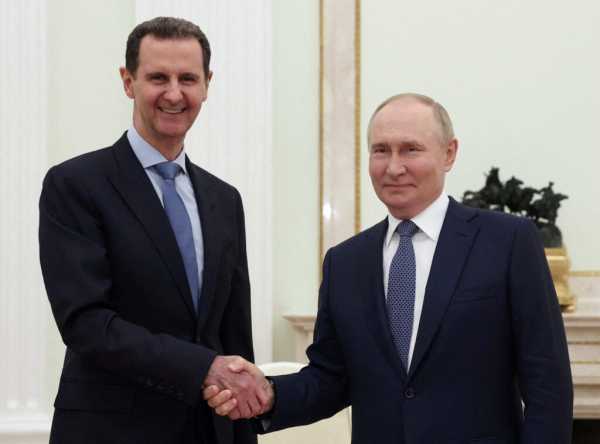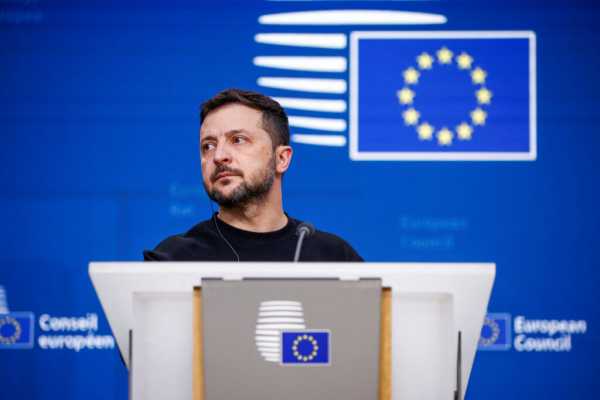
The Bulgarian Supreme Judicial Council (SJC) made an unprecedented decision to propose on Monday (12 June) the dismissal of the chief prosecutor Ivan Geshev for having damaged the prestige of the judiciary.
Geshev arrived on the same day in Strasbourg to inform MEPs on Tuesday about corruption and money laundering during the administration of former prime minister Boyko Borissov.
This is the first time a chief prosecutor has been dismissed since the transition to democracy in 1991.
The reason for the proposal to dismiss him was that he would “sweep the political trash” from the Bulgarian parliament, which was seen as contempt and a threat to MPs, also damaging the prestige of the judiciary.
Geshev justified himself for calling the Bulgarian MPs “political trash” because he was under the influence of strong emotions caused by an explosion next to his armoured car on 1 May 1 and political attacks against him.
The chief prosecutor remarked on 15 May. Three days earlier, former Bulgarian EU commissioner Maria Gabriel who was trying to form a government on behalf of Boyko Borisov’s GERB party, promised that if the attempts to create a cabinet succeed, the new justice minister would demand the dismissal of Geshev.
This was a massive change in the positions of GERB, which had previously been criticised for defending the interests of the prosecutor general and, therefore, not giving way to the reform to reduce his power. Geshev, on the other hand, was suspected of passivity in investigating cases linked to GERB and former prime minister Boyko Borisov.
Under EU pressure for reforms and US sanctions for corruption under the Magnitsky Act that affected a minister, Borissov’s party finally announced that it supports the judicial reform, which affects the prosecutor general, and even asked for his resignation.
Ultimately, GERB even supported its arch-foe, the coalition “We Continue the Change – Democratic Bulgaria” (PP-DB), who prioritised Geshev’s dismissal. On 6 June, “We Continue the Change – Democratic Bulgaria”, and GERB entered into coalition; Gabriel was appointed deputy prime minister, and in nine months, she should also become prime minister.
The events took Geshev by surprise. He assumed office in December 2019 with a seven-year mandate and until now, he has been perceived to be sheltering Borissov against investigations for corruption, despite scandalous evidence on two high-profile cases: the luxury house he allegedly had in Barcelona, the price of which exceeds his official income, and the leaked photos of his bedroom, showing drawers full of bundles of €500 notes and some gold ingots.
This is how suddenly Geshev decided to speed up the investigations against Borissov and one of the leaders of PP-DB, the former prime minister, Kiril Petkov, accused of assuming office while he still had Canadian citizenship.
On Monday, Geshev appeared before the Supreme Judicial Council, which met to decide on his dismissal, only to announce that he was going to Strasbourg to speak to MEPs about the “Barcelonagate” case, for which he asked Borissov’s parliamentary immunity to be lifted.
The prosecutor’s office claims that there is evidence of money laundering for purchasing the Barcelona house Borissov used for his mistress, with whom he reportedly has a child. Borisov denies the whole story.
Geshev is expected to speak on Tuesday to the LIBE’s Democracy, Rule of Law and Fundamental Rights Monitoring Group (DRFMG) subcommittee. He is also expected to provide information regarding investigating the leaked photos from the former Prime Minister’s bedroom. Borissov says they are staged.
“My participation will be quite interesting,” Geshev said on Monday before leaving for Strasbourg. He said he has already decided what he will display in the European Parliament.
What is unclear, however, is in what capacity Geshev will speak to MEPs. Hours after he left the meeting on Monday, the Supreme Judicial Council decided to propose to the president the dismissal of the chief prosecutor. The procedure ends in President Rumen Radev’s hands, who, in theory, can refuse to dismiss the chief prosecutor.
(Krasen Nikolov | EURACTIV.bg)
Read more with EURACTIV

Serbia sees slight rise in EU accession backers, still lowest in region.
Source: euractiv.com



